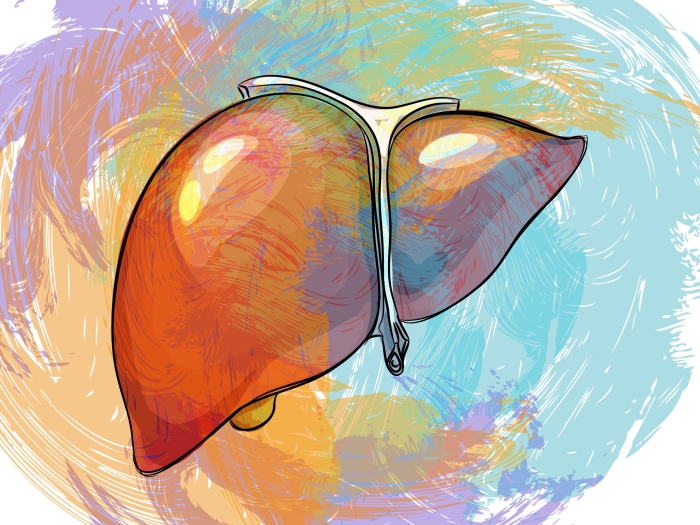After 30 years of battling irritable bowel syndrome, one patient recounts how GI hypnosis changed her life for the better.
5:00 AM
Author |
Imagine a world where diarrhea, stomach cramping and bloating are everyday occurrences. A world where you plan your day-to-day life around where the closest bathroom is. A world where your stomach condition is so severe, it hinders your ability to navigate through life.
This is often the case for the nearly 45 million Americans diagnosed with irritable bowel syndrome, or IBS, a disorder that significantly affects the gastrointestinal (GI) tract. Patients diagnosed with the condition often show symptoms like abdominal pain, bloating, constipation and diarrhea.
"For many individuals with IBS, daily life can be incredibly debilitating," says Megan Riehl, PsyD, the clinical director of the GI behavioral health program at Michigan Medicine and a GI psychologist. "And while there are many conventional treatments for the condition, the brain-gut connection is often overlooked."
This notion inspires Riehl in her role as a specialist treating individuals with functional GI conditions, which are now described as disorders of gut-brain interaction. While she incorporates her patients' varying physical states into her work, she also focuses on the many challenges that can occur beyond the physical realm.
"Taking care of your mental health is just as important as taking care of your physical health," says Riehl. "But in today's medical world, there isn't always time to adequately address the social and emotional effects of living with a chronic illness, so that's where I join the team."
MORE FROM MICHIGAN: Sign up for our weekly newsletter
When working with patients with functional and chronic GI disorders, Riehl often uses cognitive behavioral therapy and medical hypnotherapy, which are evidence based behavioral interventions which can aid patients in achieving gut-directed relaxation.
"These treatments are designed for individuals who may not necessarily have a mental health condition," says Riehl. "But many of my patients want to better manage their physical conditions and fully realize that life stressors can – and will – make their symptoms worse."
One such patient is Jennifer, who underwent gut-directed hypnosis with Riehl to better manage her IBS symptoms.
Taking care of your mental health is just as important as taking care of your physical health. But in today's medical world, there isn't always time to address the social and mental effects of living with a chronic illness.
Here is her story:
I spent 30 years dealing with IBS before meeting Dr. Riehl. As a teenager and later, a young adult, I knew I had stomach issues and often sought treatment from doctors who actually knew less about my condition than I did.
When I was finally referred to Michigan Medicine, a team of specialists comprised of a gastroenterologist, registered dietitian and Dr. Riehl, worked to provide me with a tailored relief plan. And this began my journey to true wellness.
My gastroenterologist helped me identify the full breadth of daily symptoms I was experiencing at that point, and my dietician helped me make significant changes to my diet to help alleviate some of my discomfort.
When I started seeing Dr. Riehl, it became clear to me that it was time for me to refocus my approach to my wellbeing. I realized that many of my psychosocial issues went straight from my head to my gut. And with Dr. Riehl's help, I started redirecting that pathway.
During each of our sessions, we spend time discussing my physical symptoms and general health, and then we move on to evidence-based GI hypnosis. I listen to Dr. Riehl's guided directions to relax both my body and my mind and also, to resist outside stressors. This helps me focus on me, as a whole, and pay attention to my needs.
Like Podcasts? Add the Michigan Medicine News Break to your Alexa-enabled device or subscribe for daily updates on iTunes, Google Play and Stitcher.
As maintenance, I now listen to various audio recordings of Dr. Riehl at home. Her voice brings me back to a completely calm and introspective state. Some recordings are longer than others and are reminiscent of the early face-to-face hypnosis I experienced with Dr. Riehl.
Sometimes I would visualize my descent on a staircase, or steadying myself on a rocking boat, or looking into rooms in a wood cabin. All of these suggestions are encouraged because they help me stabilize myself and avoid allowing stress to ball up in my gut.
My work with Dr. Riehl has really allowed me to calm myself and bring my thoughts to a different level of serenity. I feel energized by these sessions and it's almost as though Dr. Riehl has "reset" my way of coping with stress.
While I am by no means a person free of stressors at this point, I now know how to disconnect the strong brain-gut connection that was boiling over for so many years. I have my life back.

Explore a variety of healthcare news & stories by visiting the Health Lab home page for more articles.

Department of Communication at Michigan Medicine
Want top health & research news weekly? Sign up for Health Lab’s newsletters today!





